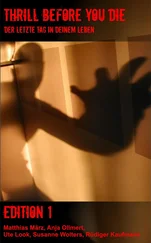When she and John reached their car, when she was safely settled in the passenger seat and her son was behind the wheel, she turned to him and said, “In the name of God, John, no funeral for me. At least no unscripted recollections. If you have any respect for your mother’s memory at all, you will not allow those people to babble over my dead body.”
“You really don’t like these things, do you?”
“No. They remind me of how little we do with our lives.”
“I thought some of the stories were rather nice. Revealing.”
“Yes. They revealed just how boring Walter Durnip really was. Now, drive, please. I want to go by the Grangers’ and get some string beans and early zucchini. And then I can’t wait to get to the club and go for a swim. If I thought you had your suit-”
“I do, Mother. It’s in the trunk.”
“Oh, good. In that case, let’s go to Echo Lake before the club. A brisk swim will clear our heads.”
She looked over the couch into the backseat of her car to make sure she had an extra beach towel back there and was relieved to see that she did. She was impressed that her son had remembered his bathing suit, but she knew there wasn’t a prayer in the world that he would have remembered to grab a towel, too.
“How cold is Echo Lake this summer?” he asked her.
“It’s warm as toast. Sixty-three degrees the other day. I’m sure it’s up to sixty-five by now.”
“Sara calls Echo Lake a big frozen slushie.”
“Are you tattling?”
“No, I agree with her. I think it’s funny.”
“And to think she grew up in Vermont,” Nan said with a sigh. Sometimes she couldn’t believe how soft this next generation was. “Really, now, John: It’s lovely. Invigorating.”
Though the two-lane road to the highway was little wider than a cow path and filled with the sorts of switchbacks that made her granddaughters nauseous (Nan honestly didn’t believe it was her driving that was the cause, because she reasoned then she would be nauseous, too), a beaten-up sports car appeared out of nowhere behind them and-ignoring the double yellow line-passed them. Its engine roared like a jet, and she noted inside the vehicle the mangy young men with their sleeveless muscle shirts and cigarettes dangling from their mouths.
“If we were in Vermont, I would guess they were your clients,” she said.
He smiled. “If we were in Vermont-in Chittenden County, anyway-they probably would be.”
She wasn’t sure how to show it (and so she never did), but she was proud of her son. When he had chosen to leave that tony law firm in Burlington to become a public defender, he had demonstrated to her that he understood the importance of service. A responsibility he shouldered for no other reason than the simple reality that his family had advantages. Nan didn’t focus much attention on the nuances of Democratic or Republican policy toward the urban poor she saw in Manhattan or the rural poor she saw here in the country, but she did have the sense that policy in both cases revolved largely around throwing money at the problem: In the case of the Democrats it was tax money and in the case of the Republicans it was tax-deductible contributions. But it was never, in Nan’s opinion, about time. It was never about giving what she deemed a human being’s most precious commodity: the hours and days one had on this planet. It was especially important to be generous with your life if you had one as cushy as she had, which was why she had volunteered for years and years to help children learn to read at public schools in Harlem and Chinatown and the South Bronx. When her privileged son had realized he had certain responsibilities in his early thirties and moved his career in a different direction, she had been pleased.
“Have you had a busy summer?” she asked John. “At the office?”
“No worse than usual. But it seems more out of control since Patrick was born. Everything does. These days I’m constantly treading water and still getting waves and waves up my nose.”
“Do you ever regret leaving private practice?” she asked him-a reflex she couldn’t restrain.
He turned briefly from the road to her: Clearly he was as shocked as she that she had asked such a personal question, one so rife with the possibility for honesty and confession and delicate revelation. Then his eyes went back to the road and he answered, “Not a bit. These people need me. Sometimes they have no one else in the world looking out for them.”
She found herself smiling because her son was happy and doing good work, but also because he hadn’t allowed their conversation to grow intimate with the sort of disclosure that just might have made them both uncomfortable.
LATE THAT AFTERNOON, Willow listened as the grown-ups sat on the porch at the house on the hill sipping iced tea and talking about the deer and Walter Durnip’s funeral, or teasing Aunt Catherine for playing tennis with a hunky teenage lifeguard half her age. She listened as they talked about golf and tennis and swimming in Echo Lake and as they made jokes at her and her cousin’s expense about how tough the Seton New England Boot Camp really was-and how difficult it must be for them to keep up with their grandmother. And while Charlotte defended herself with enthusiasm, Willow was content to sit on the outdoor rug on the wood beside Patrick, painting her toenails and watching the baby loll on his back and pedal his small feet in the air. She was happy because soon they would be going back to the club, where she would be only briefly on parade for Grandmother’s friends. Then she and Charlotte would be allowed to join the older kids-teenagers, really-at their own barbecue and bonfire at the edge of the golf course. She was still nervous, but in the course of the day she had also grown excited.
She thought her uncle’s rant about his visit to the garden center was unintentionally funny, especially the way he would seethe when he would bring up the nursery owner’s suggestion that he hunt the deer down. She didn’t know if the owner meant now or during deer season, but the whole idea of her uncle even holding a rifle was laughable.
“There must be something you can do-something we can do,” Charlotte said at one point, and Willow was touched by her cousin’s uncharacteristic solicitude-her desire to help her father with his cause. Charlotte rarely volunteered to help anyone with anything, and Willow attributed the girl’s longing to be of assistance to the reality that before yesterday she hadn’t seen her parents in almost two weeks.
“Sure there is,” John Seton told his niece. “Replant the garden and turn the property into a petting zoo. If you can’t beat ’em, feed ’em.”
Willow knew it was a family secret that her father had taken up hunting. When he’d started to speak, for a brief second Willow had presumed with no small amount of astonishment that he was about to admit to the McCulloughs that he owned a gun and bullets and those water-repellent army fatigues. The whole deal. She had never told Charlotte about her father’s new hobby, and a couple of times when deer had come up in the last twenty-four hours, her mother had looked at her with raised eyebrows, a gentle reminder that Uncle Spencer and his family did not need to know that Dad now owned a gun.
“Anyway, I think we should all have dinner tomorrow night at Gerta’s,” her father was saying. “See if the busboys are still wearing lederhosen and the waitresses still have to wear those bib things with the push-up bras. You just loved that costume, didn’t you, Sis?”
“We did not wear push-up bras,” her aunt Catherine said.
Grandmother looked up from the biography as thick as a brick in her lap and said, “When Marguerite had dinner there two weeks ago, she said that one of the busboys started playing the piano after the kitchen had stopped serving.”
Читать дальше











